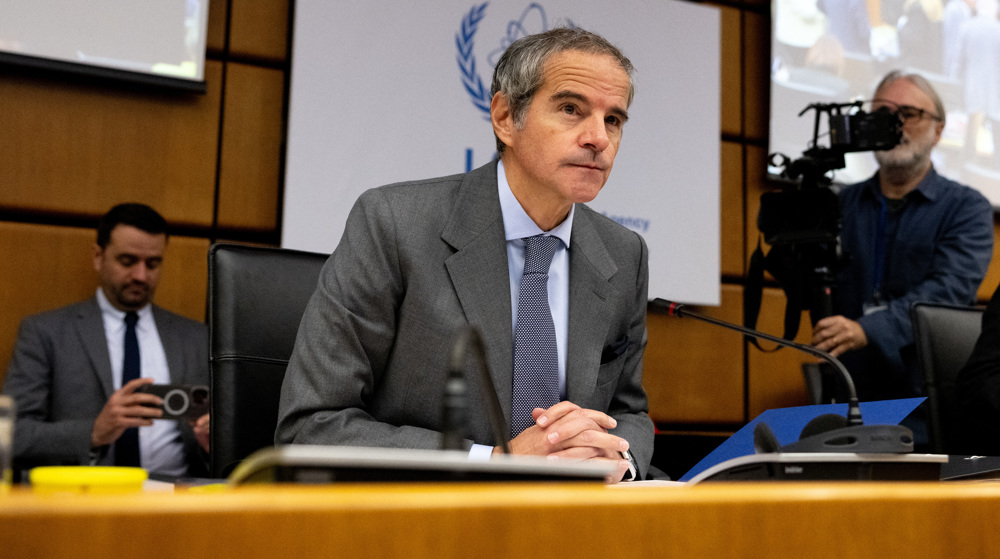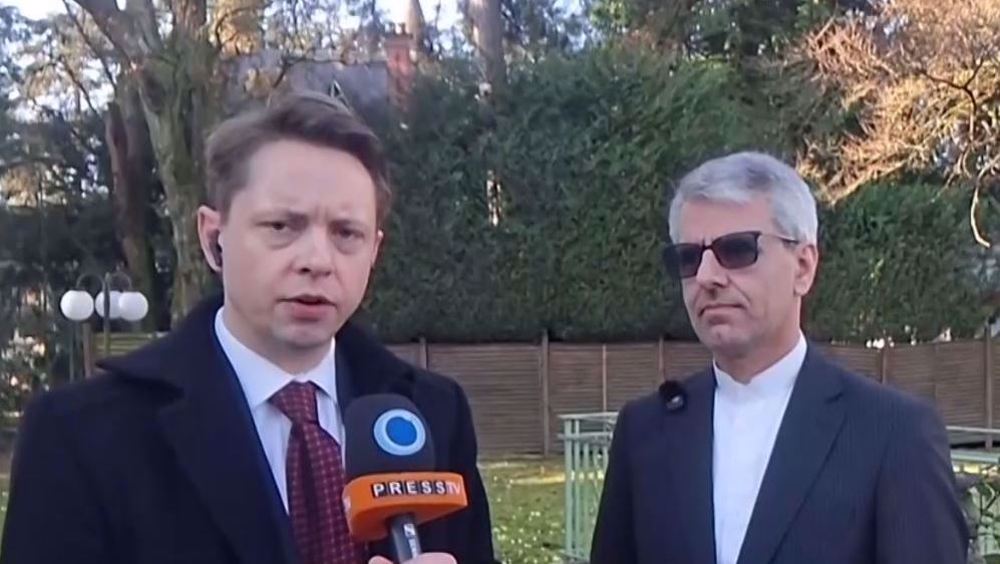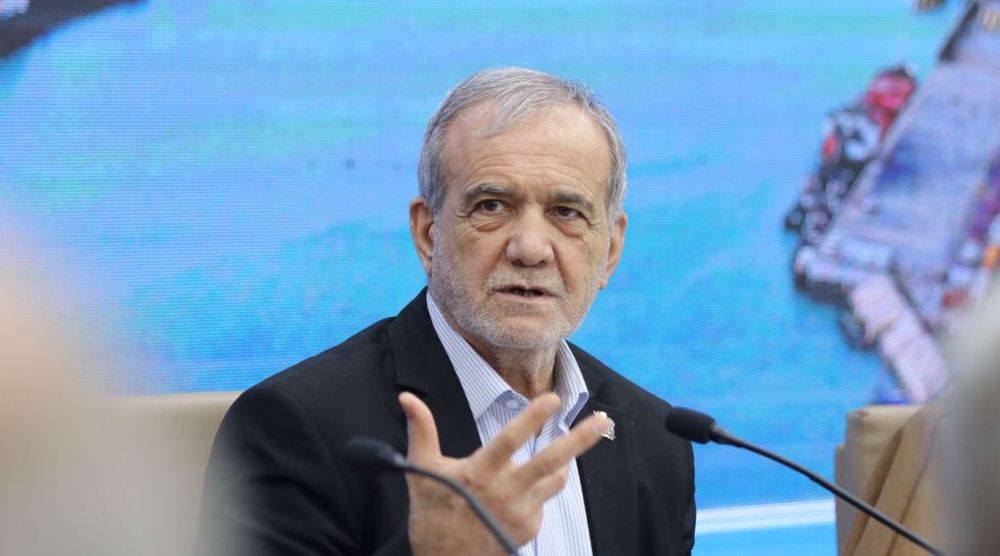Iran will quit nuclear deal if it does not benefit from it: President Rouhani
Iranian President Hassan Rouhani says the Islamic Republic will quit the multilateral nuclear agreement Tehran signed with major world powers in 2015 if it does not benefit from the deal after the US pullout.
Rouhani made the remarks during a Tuesday phone call with his French counterpart, Emmanuel Macron, a month after the United States' unilateral move to withdraw from the nuclear agreement, officially known as the Joint Comprehensive Plan of Action (JCPOA).
"If Iran cannot enjoy the agreement's benefits, it will be practically impossible to stay in it," Rouhani said.
The Iranian president commended the statements of the European countries, including France, to salvage the JCPOA. However, he emphasized that such declarations must be accompanied by practical and tangible measures and solutions to help Iran benefit from the agreement.
"We should not allow that this very great diplomatic achievement be destroyed by the others' unilateral measures and acts of violation," he said.
Rouhani expressed hope that efforts by the five remaining signatories to the JCPOA and Iran as well as the European Union would be successful and fruitful.
US President Donald Trump announced on May 8 that Washington was walking away from the nuclear agreement, which was reached between Iran and the five permanent members of the UN Security Council - the United States, Britain, France, Russia and China - plus Germany.
Trump also said he would reinstate US nuclear sanctions on Iran and impose "the highest level" of economic bans on the Islamic Republic.
Under the JCPOA, Iran undertook to put limits on its nuclear program in exchange for the removal of nuclear-related sanctions imposed against Tehran.
Since the US president pulled Washington out of the historic nuclear deal, European countries have been scrambling to ensure that Iran gets enough economic benefits to persuade it to stay in the deal. The remaining parties have vowed to stay in the accord.
Read more:
- Iran taking steps to facilitate investments after US nuclear deal pullout: Larijani
- Iran warns will stop negotiations if Europe wastes time
- EU resolved to preserve Iran nuclear deal after US withdrawal: Mogherini
- EU must defend 'core' of Iran nuclear deal: Commission chief
- Iran won't wait for Europe's dateless promises: Larijani
Iran welcomes consultations with France on Syria: Rouhani
Elsewhere in his remarks, the Iranian president said the Islamic Republic welcomes the continuation of consultations with France on ways to establish peace and stability in Syria.
Despite the illegitimate presence of some foreign countries' forces, Iranian military advisors are in the war-stricken country based on its government's formal request with the purpose of fighting terrorism, Rouhani added.
He expressed hope that terrorism would be eradicated in Syria through joint efforts by pro-Syrian government forces and people so that there would be no need to foreign forces.
Iran has been offering military advisory support to Syria at the request of the Damascus government, enabling its army to speed up its gains on various fronts against terror groups.
Syrian Foreign Minister Walid al-Muallem said earlier this month that Iran has no military presence or bases in his country but Iranian military advisors are there to help Damascus fight terrorist groups.
“[There is] no Iranian military presence on the Syrian territories; rather there are advisors who work by the side of the Syrian Arab Army,” Muallem said during a press briefing in the Syrian capital, Damascus.
Lebanese Parliament Speaker Nabih Berri said the Islamic Republic of Iran has been offering military advisory support to Syria at the request of the Damascus government.
Speaking in an exclusive interview with the Arabic service of the Russian Sputnik news agency, Berri pointed out that Iranian military advisors are in Syria, just like Russian servicemen, to help government forces speed up their gains on various fronts against foreign-sponsored Takfiri terror groups.
France remains committed to nuclear deal: Macron
The French president, for his part, said that France would remain committed to the nuclear deal and is making its utmost efforts to salvage it.
He informed his Iranian counterpart on a series of practical measures that would help Tehran enjoy from the nuclear agreement's benefits.
Macron said Tehran and Paris have a common stance on the JCPOA and urged all the deal's signatories to try to save it and do not allow those who seek to destroy the deal to make the slightest mistake.
French Finance Minister Bruno Le Maire said in May that Paris is weighing possible ways that could help the European Union compensate European companies that might be facing sanctions by the United States for doing business with Iran following Washington's withdrawal from the key nuclear agreement.
Le Maire said that EU rules going back to 1996 could allow the 28-nation union to protect European companies against any US sanctions and added that the EU should toughen its stance in this regard.
'We warned repeatedly about the limit to our patience': Hezbollah leader
IRGC announces 'blinding' US, Israel's eye in region; vows harsher retaliation coming
Iraqi resistance leader urges Americans to ‘reclaim’ country from Israeli ‘puppet Trump
Iran blasts US-Israeli use of autonomous killer systems against civilians as 'war crime'
US-Israeli aggression left Tehran with no choice but to defend Itself: President Pezeshkian
Iran urges immediate intl. action against US attacks on schools
Iraq won’t allow terror groups to cross border into Iran: Security official
Iran’s security chief: Does America come first or Israel with 500 US soldiers killed?













 This makes it easy to access the Press TV website
This makes it easy to access the Press TV website